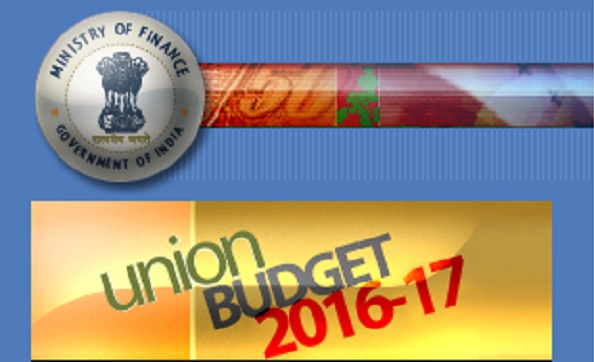The Finance Minister made some key announcement in the Union Budget, 2016. Here are some of the takeaways for investors from the budget announcements.
Please note following are only budget proposals (as mentioned in the Finance Bill). The Bill needs to be passed by the Parliament before it becomes an Act. Based on feedback from various quarters, it is quite possible that some of the proposals might be retracted or modified.
1. 40% of NPS maturity amount is exempt from tax at the time of retirement
This should draw cheers from NPS subscribers. At the time of retirement, 40% of the accumulated corpus is exempt from income tax. Earlier, the entire lump sum withdrawal was taxable at the marginal income tax rate.
I have done a detailed post on this topic. You can go through the post here.
2. EPF now becomes part EET
This is not good news for many of the readers. EPF is now EET (at least a part of it).
Withdrawal from EPF has now been made taxable. For contribution made after April 1, 2016, only 40% of the withdrawal amount is exempt from tax.
For contribution made before April 1, 2016: Contribution and interest, both are exempt from tax
For contribution made after April 1, 2016: Contribution and interest, exempt up to 40%. Remaining is taxable. For the taxable portion, both contribution and interest are taxable. Both self contribution and employer contribution shall be taxed.
It appears a rational move. This brings the taxation of EPF in line with NPS (after the recent budget proposal). However, investors are not going to find this news pleasant.
Must Read: 40% of NPS maturity corpus is exempt from income tax
Please understand this is a budget proposal and only part of Finance Bill at the moment. It needs to be approved by Parliament before it gets implemented. You can expect significant pressure from labour unions and opposition parties to retract this announcement. In my opinion, the final word is yet to be written on this matter.
Public Provident Fund remains untouched by this move. PPF remains Exempt-Exempt-Exempt.
3. Increase in time limit for completion of construction of Self-Occupied property
Currently, the tax deduction for interest payment on a home loan is capped at Rs 2 lacs per financial year. However, if the construction of house is not completed within 3 years from the end of financial year in which the loan was taken, the tax benefit is capped at Rs 30,000.
The Finance Minister has proposed to increase this period to 5 years (under Section 24).
This will bring huge relief to a number of home buyers who have faced long delays in possession. Such buyers have already faced such stress on account of delays and even had to compromise on tax benefits. You get full tax benefit under Section 24 if the construction is completed within 5 years.
4. Tax rebate under Section 87A increased from Rs 2,000 to Rs 5,000 per year
Tax rebate under Section 87A increased from Rs 2,000 per annum to Rs 5,000 per annum. This tax rebate is available to only those tax-payers whose total income is less than Rs 5 lacs. That is a neat tax-saving of an additional Rs 3,000 per year for those who meet the criteria.
5. Dividends to be taxed in the hands of investors
This is applicable to only dividends paid by companies (and not mutual funds).
If the gross amount of dividend in a financial year exceeds Rs 10 lacs, then you will have to pay additional income tax at the rate of 10% on the dividend amount in excess of Rs 10 lacs. Earlier, any dividend was exempt from income tax in the hands of the investor. The taxation shall be on gross basis.
6. Interest earned on Gold Monetization scheme is tax-free
Interest from deposits under gold monetization scheme, 2015 is now exempt from Income Tax. As I understand, there shall be no capital gains tax either at the time of redemption of such deposit.
7. Greater relief for self-employed for rent paid under Section 80GG
You can now avail deduction under Section 80GG to the least of (Rs 5,000 per month, 25% of total income, Rent – 10% of annual income). Earlier, the deduction was Rs 2,000 per month.
So, earlier you could have got the maximum benefit of Rs 24,000 per annum. Now, it can go up to Rs 60,000 per annum
Other conditions to avail this tax benefit remain.
This is applicable to those who are self-employed or are not availing House Rent Allowance (HRA).
You, your spouse or minor children shall not own residential accommodation at the place of your employment. Additionally, you must not have availed any HRA during the entire financial year. You should not have any self occupied residential premise in any other place. If you were employed for 2 months in the year (and availed HRA) and were self-employed during the remaining period, you can not avail this deduction.
Must Read: 15 lesser known income tax deductions
8.Relief for First time Home buyers
First time home buyers will get an additional tax benefit of Rs 50,000 on interest payment towards a home loan.
This benefit is only available to first time home buyers. The value of house shall be less than Rs 50 lacs. The loan amount shall not be greater than Rs 35 lacs. The loan must be sanctioned between April 1, 2016 and March 31, 2017.
This deduction is over and above deduction for interest paid up to Rs 2 lacs for a self-occupied property under Section 24 of the Income Tax Act.
9. Service tax is now higher at 15%
Krishi Kalyan Cess at 0.5% has been imposed on all taxable services with effect from June 1, 2016. Effectively, service tax will be 15% (14% service tax, 0.5% Swachh Bharat Cess 0.5% and Krishi Kalyan Cess 0.5%)
10. Service tax on Single Premium Annuity plans
Reduced from 3.5% to 1.4%. This is beneficial for investors.
11. Change in STT for Option transactions
Securities transaction tax (STT) on sale of options in securities (where option is not exercised) has been increased from 0.017% to 0.05%.
Disclaimer: This is my interpretation of some of the tax changes proposed in the budget.










